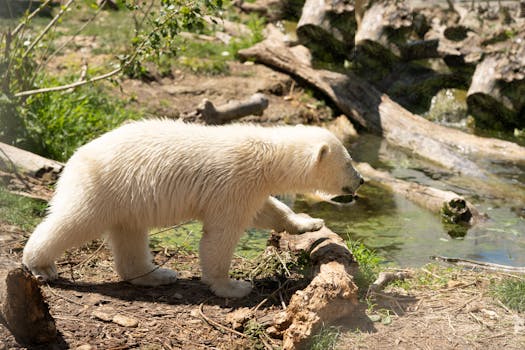
The Urgency of Climate Change
Climate change represents one of the most significant challenges facing our planet today, with profound implications for global ecosystems. As average temperatures rise, natural habitats transform, leading to a cascade of environmental shifts. These alterations not only threaten wildlife and biodiversity but also affect the human communities that depend on healthy ecosystems.
Biodiversity Loss and Species Extinction
The increased frequencies and intensities of natural disasters, such as wildfires, hurricanes, and floods, have wreaked havoc on ecosystems. Many species lack the adaptations necessary to survive amid climate change. According to the Intergovernmental Panel on Climate Change (IPCC), over one million species are currently on focus for potential extinction if current trends continue. The extinction of even a single species can have ripple effects throughout its ecosystem, highlighting the interconnectedness of natural environments.
Ocean Ecosystems at Risk
Marine ecosystems are particularly at risk from the impacts of climate change. Rising sea temperatures and increased acidification threaten coral reefs, which are often referred to as the “rainforests of the sea.” Coral bleaching, a phenomenon exacerbated by warming waters, leads to widespread coral death, severely impacting marine biodiversity. Furthermore, disrupted fish migration patterns due to changing ocean temperatures can lead to a decline in fish populations, affecting global fishing industries and coastal economies.
Terrestrial Ecosystems and Habitat Shifts
On land, habitats are shifting as species attempt to adapt to new climate conditions. For instance, tree lines are moving towards higher elevations, and some forests are shifting toward poleward regions. This migration can decimate crucial flora and fauna that cannot adapt quickly enough. Additionally, invasive species often emerge as a consequence of climate-induced habitat changes, often preying on native species or competing for resources, further destabilizing these delicate ecosystems.
Human Impacts and Future Implications
The repercussions of climate change do not exist in isolation; they directly intersect with human communities. Agriculture relies significantly on stable climates, and fluctuations can lead to food security challenges, exacerbating existing socio-economic disparities. As communities confront these future turmoil, our health, livelihood, and environment are all steeped in uncertainty. Thus, the collective fight against climate change is not merely an environmental issue but a pivotal component of social justice, public health, and sustainable development worldwide.




